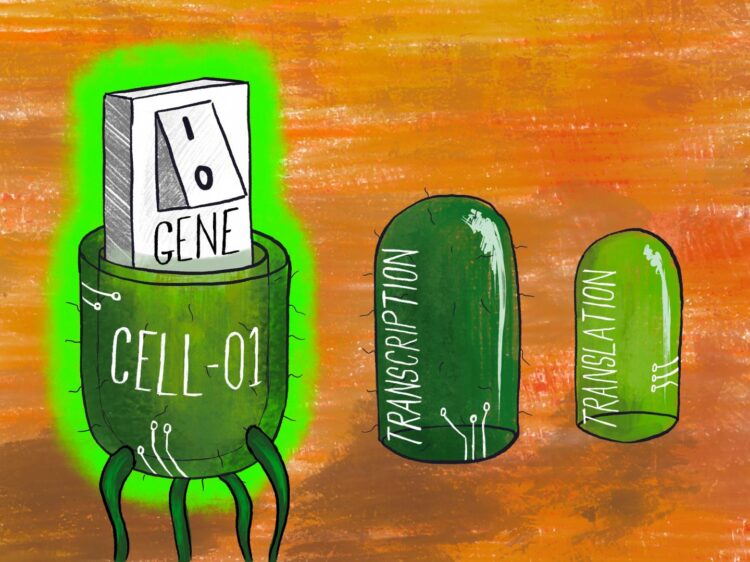
Credit: Thomas Gorochowski
In a recent study led by the University of Bristol, scientists have shown how to simultaneously harness multiple forms of regulation in living cells to strictly control gene expression and open new avenues for improved biotechnologies.
Engineered microbes are increasingly being used to enable the sustainable and clean production of chemicals, medicines and much more. To make this possible, bioengineers must control when specific sets of genes are turned on and off to allow for careful regulation of the biochemical processes involved.
Their findings are reported today in the journal Nature Communications.
Veronica Greco, lead author and a Royal Society funded PhD student at Bristol’s School of Biological Sciences, said: “Although turning on or off a gene sounds simple, getting a living cell to do it on command is a real challenge. Every cell is slightly different, and the processes involved are not 100 percent reliable.”
To solve this issue, the team took inspiration from nature where key events are often controlled by multiple processes simultaneously.
Veronica Greco added: “If you look at a Venus flytrap you find that a trap will only close when multiple hairs are triggered together. This helps reduce the chance of a trap closing by accident. We wanted to do something similar when controlling the expression of a gene inside a cell, adding multiple-levels of regulation to ensure it only comes on precisely when we want it to.”
Professor Claire Grierson, co-author and Head of the School of Biological Sciences at Bristol, added: “What was wonderful about this project was how well it worked to harness two of the core processes present in every cell and underpinning all of life – transcription and translation.”
The team showed that by using this type of multi-level regulation, they could create some of the most high-performance switches for gene expression built to date.
Moreover, working in collaboration with Dr Amir Pandi and Prof Tobias Erb from Bristol’s Max Planck Institute for Terrestrial Microbiology, the team were able to go a step further. They demonstrated that even when used outside of living cells, these multi-level systems offered some of the most stringent control over gene expression yet seen.
Dr Thomas Gorochowski, senior author and a Royal Society University Research Fellow at Bristol, said: “When we engineer microbes, we often try to simplify our systems as much as possible, thinking we’ll have better control over what is happening. But what we’ve shown is that embracing some of the inherent complexity of biology might be the key to fully unlocking its potential for the high-precision biotechnologies of tomorrow.”
###
The study was funded by the Royal Society, Max Planck Society, European Molecular Biology Organization (EMBO), BBSRC and EPSRC with support from the Bristol BioDesign Institute (BBI)
Media Contact
Thomas Gorochowski
[email protected]





